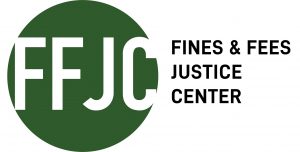Washtenaw County Hosts Team from the Fine and Fee Justice Center

Ann Arbor, MI – Earlier in the summer, Washtenaw County was selected to participate in the second cohort of Cities and Counties for Fines and Fee Justice (CCFFJ). The cohort kicked off this week with a site visit from members of the national CCFFJ team, including members of the Fine and Fee Justice Project in San Francisco, and Treasurer of the City and County of San Francisco, José Cisneros .
Over the course of two days, the County’s core Fine and Fee Justice cohort team, led by the Racial Equity Office, participated in a series of hybrid meetings and visioning sessions designed to calibrate, set goals and plan next steps for fine and fee justice reform in Washtenaw County. Several local stakeholders representing the criminal/legal system, elected officials from the county, and community partner organizations participated in the sessions.
“Fine and fees can have such large impact on life outcomes for people,” said Sue Shink, Chair of the Board of Commissioners, “This cohort opportunity offers us the tools and resources needed to implement reforms and create substantial change. Along with the Board’s investment in Financial Equity, it helps us move the needle even more towards making Washtenaw County an equitable place for all residents.”
The CCFFJ is led by the Fines and Fees Justice Center and the City and County of San Francisco’s Financial Justice Project. Washtenaw County earned a slot in the second Cohort of the initiative and will spend the next year developing and implementing strategies to eliminate fines and fees associated with the local criminal/legal justice system. The work will be bolstered by a $500,000 American Rescue Plan Act allocation as part of the Financial Equity Center approved by the Board of Commissioners on September 21st.
“This opportunity has the potential to be transformational for residents and we are excited to host the San Francisco Team,” shared Alize Asberry Payne, Racial Equity Officer, “Our elected officials are extremely supportive of this work and it’s important that they have an opportunity to meet the partners, see the vision, and help set the goals.”





















